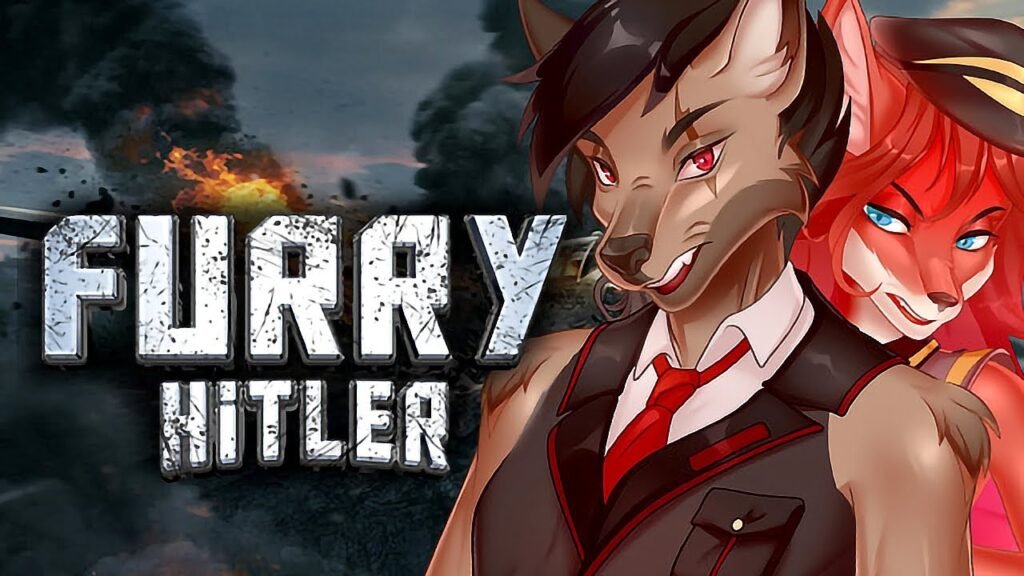The internet thrives on absurdity, but “Furry Hitler” might be one of its most unsettling creations. At first glance, the term feels like a sick joke—mixing the innocent world of anthropomorphic animals with the horrors of Nazi ideology. Yet, this meme is more than just shock humor—it’s a window into online extremism, satire, and the fragility of digital subcultures.
In this deep dive, we’ll explore:
- The origins of the “Furry Hitler” meme
- Why it sparks outrage and controversy
- How the furry fandom has responded
- The dangerous blur between irony and extremism
- What this says about internet culture as a whole
What Is “Furry Hitler”? (And Why Does It Exist?)
The “Furry Hitler” concept didn’t appear out of nowhere. It’s rooted in the internet’s love of absurdist humor and boundary-pushing trolling. On platforms like 4chan and Reddit, users have a long history of mashing up unrelated ideas for shock value.
Some trace “Furry Hitler” back to the early 2010s, where satirical fan art depicted Hitler as a cartoonish wolf or fox. At first, it was pure irony—a way to mock both Hitler’s infamy and the furry fandom’s innocence. But as with many internet jokes, some took it too far.
Why “Furry Hitler” Is So Controversial
Critics argue that “Furry Hitler” trivializes genocide, turning a monster into a quirky, fictional character. Worse, it risks normalizing Nazi imagery in online spaces.
As Dr. Emily Turner, a digital culture researcher, warns:
“When extremist symbols become memes, they lose their gravity. What starts as a joke can become a gateway to radicalization.”
The Furry Fandom’s Reaction: Rejection and Resistance
The mainstream furry community has loudly rejected “Furry Hitler.” For a fandom built on inclusivity and creativity, the meme is an offensive misrepresentation.
One Reddit user on r/furry put it bluntly:
“Most of us just want to draw cute animals. ‘Furry Hitler’ is either a bad joke or a deliberate smear.”
The Fight Against Extremist Infiltration
Despite the fandom’s anti-hate stance, extremist trolls have tried to hijack furry spaces. Some post Nazi-furry art to provoke reactions or recruit followers.
In response, furry forums and cons have banned fascist symbols—proving the community won’t tolerate hate.
The Dark Side of Meme Culture: When Jokes Turn Dangerous
Many “Furry Hitler” creators claim it’s pure satire. But researchers warn: repetition erodes taboos. Ironic racism can lead to real racism.
“Post-Irony” – When Trolls Start Believing
In some circles, “Furry Hitler” is no longer a joke. Neo-Nazis now use it unironically to spread propaganda. This “post-ironic extremism” is a growing threat.
Broader Implications: How Memes Fuel Extremism
This isn’t an isolated trend. The far-right has long used memes to mainstream extremist ideas. (See: Pepe the Frog, “clown world” rhetoric.)
How the Internet Fights Back
Platforms are cracking down:
- Reddit & Twitter ban hate symbols
- Furry forums enforce strict anti-Nazi rules
- Counter-memes mock and dismantle extremist narratives
Conclusion: Can We Stop “Furry Hitler” – And Should We?
The “Furry Hitler” meme is a case study in online radicalization. It’s a reminder that even “jokes” can have real consequences.
The solution?
- Stronger moderation
- Education on digital literacy
- Countering hate with humor and solidarity
The internet should be fun, creative, and safe—not a playground for fascist larpers.
The Elegy of Fate Unveiled: Are You Dancing to Life’s Hidden Tune?
